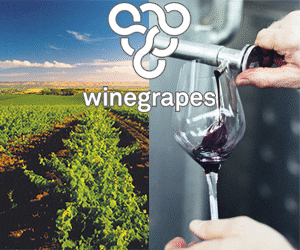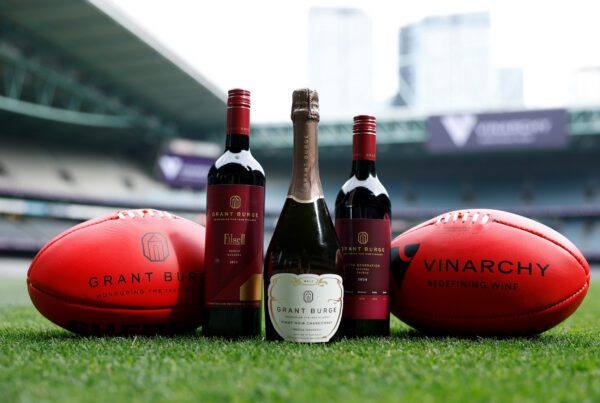
Riverland grapegrowers are calling for urgent financial support measures to save the local industry.
This follows an emotion-charged meeting of about 175 Riverland grapegrowers and industry and government representatives in Barmera last night to discuss the future of the local industry.
The oversupply of red winegrapes, low grape prices and cancelled contracts with wineries is pushing many local growers to the wall.
“The situation is desperate and there were some growers last night saying it was difficult putting food on the table, let alone pick grapes and try and sell them for a price which will cost them money, not earn them a cent,” Riverland Wine executive officer Lyndall Rowe says.
“They fear the Riverland will be decimated with growers pulling out of the industry because they can’t afford to grow grapes anymore, leaving the region as a series of ghost towns for our youth.
“It was clear they need support, while medium and longer-term strategies to raise the region’s profile, allow for succession planning and to reach new markets are helpful, they need immediate help.”
The meeting was attended by Wine Australia CEO Martin Cole and Australian Grape & Wine CEO Lee McLean.
SA Primary Industries Minister Clare Scriven could not attend because Parliament is setting.
Liberal Member for Barker Tony Pasin was there. He said Riverland Wine should arrange a meeting with Federal Agriculture Minister Murray Watt.
“This meeting should have happened years ago,” Pasin said.
“Ask the Government to come here. They will not act unless they are listening to this.
“Watt should be here.”
While the meeting was orderly and growers were respectful, there was a lot of emotion from people trying to make ends meet.
There was some anger directed at the bodies meant to represent them.
“What’s Riverland Wine ever done for us?” one grower asked.
Another grower said any financial support should not be seen as a handout – but “an investment in the long-term future of the region.”
More than one grower blamed the Morrison Government for the breakdown in relations with China.
Ms Rowe says growers are increasingly frustrated with the low prices being offered for their grapes, among the many other challenges they have faced in recent years.
Suggestions raised at the grower meeting include:
• Financial support, including relief from bills, loan repayment relief, support packages for people wanting to or being forced to exit the industry;
• Financial support to pick to ground or pause vineyards for one to two vintages until conditions improve;
• Introducing licence conditions for growers (similar to the fishing industry) to preserve the industry’s values, standards and quality of grapes;
• Re-establish a floor price for grapes, and financially supplement any difference between the market price and a floor price;
• Introduce a moratorium on new vineyard plantings, and more oversight on corporate plantings, including ensuring any vineyard reductions were required first by corporates before family businesses;
• Financial support for growers to transition varietals;
• Altering regional planning zoning rules to release blocks for residential use;
• Hosting another meeting with government decision-makers; and
• Marketing and business coaching support.
“Our growers need immediate crisis support, and we will be putting their suggestions to our local councils, the State Government and the Federal Government, and we are hoping our industry partners will support our calls to help save the nation’s largest grapegrowing region,” Ms Rowe says.
“It’s not just our growers – as a viable and strong industry in our region, we create jobs for grape pickers, winemakers, wineries and local hospitality venues, transport providers, local retailers and more.
“The flow-on effects if our growers can’t run profitable businesses are significant and far-reaching.”
The results of last night’s forum at Barmera, once circulated and feedback sought among growers, will be put to the three tiers of government and circulated to industry groups in the coming days.
Riverland Wine represents the more than 930 winegrape growers and more than 30 wineries in the region.
It is the partnership between the Riverland Winegrape Growers Association (RWGA) and the Riverland Wine Industry Development Council (RWIDC).
The Riverland is world-renowned as the most adaptable wine region, producing exceptional wine experiences that consumers increasingly demand.













Recent Comments